Michael Harrison: The Future of Radio Depends Upon What Those of Us in the Business Make It
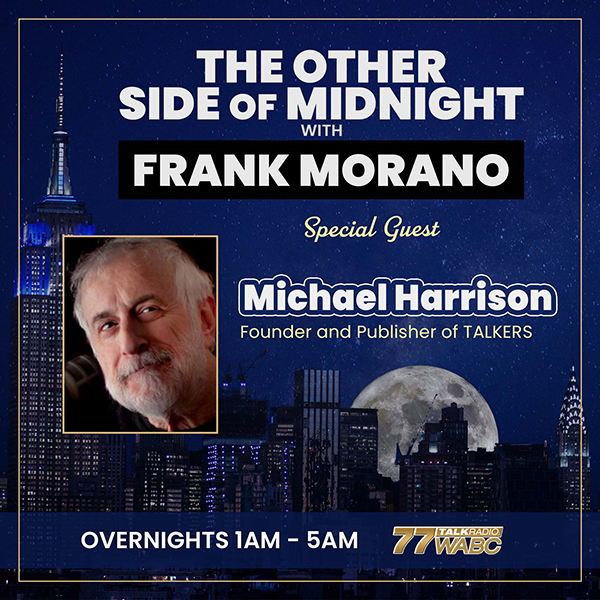
TALKERS founder Michael Harrison appeared as a guest Wednesday on Frank Morano’s “The Other Side of Midnight” show (3/13) as part of his current “Scammers” interview tour promoting the new Gunhill Road “Damn Scammers (Get Off My Phone)” music video (www.scammersvideo.com). The conversation illuminated Harrison’s concerns about the rapid spread of scamming and fraud in the digital space but quickly expanded to a discussion about the pros and cons of AI and an existential look at the future of the radio platform itself.
Regarding the insidious growth of scams on the internet, Harrison said, “It is a major problem up there with terrorism, inflation, street crime, pandemics, uncontrolled immigration, and war… it’s corroding the quality of our lives, lowering the bar on integrity, and raising the level of disingenuousness that is becoming a ‘normal’ part of our culture.” Harrison attributes a major part of the problem to legislators being behind the curve on this, stating, “Historically, it takes time for legislation to catch up to changes in technology… now that technology is changing so rapidly it’s increasingly difficult for legislators to keep up with it. In many cases they don’t even have a clue as to how the internet operates.”
Regarding the issue of AI stealing jobs from broadcasters – particularly talent – going forward, Harrison was blunt: “Just like all technology, AI is a double-edged sword and can be dangerous. But in the case of art, people have always accused new technologies in art as somehow being fake and ‘cheating’ but history has consistently shown that today’s technology is tomorrow’s art. Regarding the loss of jobs for radio talent, it all depends on what you bring to the table. If you are a basic announcer, meaning you read most of your content from a script or apply a very limited range of verbiage such as time, temperature, news and the simple intros and outros of songs – watch out, you will likely lose your job. But if you’re a talk show host, analyst, interviewer, or commentator – all you have to do is work a little harder… you have to be even more original. AI can only draw upon and synthesize what’s already out there. You’ll have to stay ahead of the AI learning curve. All AI can actually do is realistically recreate monologues and dialogue that are in the category of worn-out talking points. If that’s what you are currently doing on the air, you’ll be replaced by AI and no one will notice.”
Regarding the future of radio and its ongoing viability in the digital era, Harrison said that it depends on whether those of us in the industry actively create radio’s relevant future or abandon it out of fear or simple lack of ideas. Harrison warned, “The use of ‘audio’ as a description of this medium is short-sighted. Radio is an esthetic… complex and organic. All radio is audio but not all audio is radio. Putting up a sign on radio calling it audio would be like owning a restaurant and calling it ‘food’ or a specific brand car dealership and calling it ‘transportation.’” Listen to the interview here



 more ads that communicate dry features/benefits. Additionally, research indicates that converting existing demand and creating future demand require different creative/copy approaches and different media strategies. Converting existing demand is most efficiently achieved by tightly targeting those “in the market” with rational messaging of product and price information that persuades them to choose the advertiser’s product over others. Creating future demand is most efficiently achieved by targeting very broad audiences of “all category buyers” with emotional messaging that is designed to stand out and be enjoyed by consumers, creating positive memories of the brand that will influence future purchase decisions. Finally, podcast consumers are invested in the success of their favorite shows. Half of weekly podcasts consumers said they wouldn’t mind a couple of extra ads per show so their favorite podcasts could continue.
more ads that communicate dry features/benefits. Additionally, research indicates that converting existing demand and creating future demand require different creative/copy approaches and different media strategies. Converting existing demand is most efficiently achieved by tightly targeting those “in the market” with rational messaging of product and price information that persuades them to choose the advertiser’s product over others. Creating future demand is most efficiently achieved by targeting very broad audiences of “all category buyers” with emotional messaging that is designed to stand out and be enjoyed by consumers, creating positive memories of the brand that will influence future purchase decisions. Finally, podcast consumers are invested in the success of their favorite shows. Half of weekly podcasts consumers said they wouldn’t mind a couple of extra ads per show so their favorite podcasts could continue. 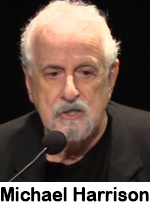 We live in an increasingly noisy world. The accelerating advancement of media technology, with its accompanying “everybody is a star” syndrome, combine to make it increasingly difficult to get attention. By that, I mean real attention – the kind of attention that those in the professional media (and related) industries describe as “traction.”
We live in an increasingly noisy world. The accelerating advancement of media technology, with its accompanying “everybody is a star” syndrome, combine to make it increasingly difficult to get attention. By that, I mean real attention – the kind of attention that those in the professional media (and related) industries describe as “traction.” WHAT WOULD YOU DO? A very good major market DJ murders his wife and injures her lover upon catching them in the marital bed. An 11-year-old girl was in the house – a witness. The murderer is convicted (second-degree murder/“situational crime”) sent to prison, does his time and is released after a few years for good behavior while incarcerated.
WHAT WOULD YOU DO? A very good major market DJ murders his wife and injures her lover upon catching them in the marital bed. An 11-year-old girl was in the house – a witness. The murderer is convicted (second-degree murder/“situational crime”) sent to prison, does his time and is released after a few years for good behavior while incarcerated.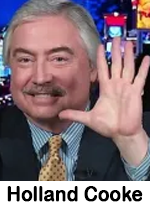 Thanks to those who sent comments on last week’s column “
Thanks to those who sent comments on last week’s column “
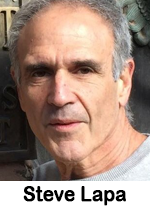 Simple question, tricky answer. Unless you are organized.
Simple question, tricky answer. Unless you are organized.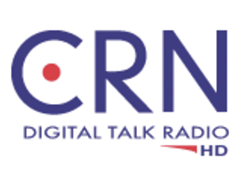 from the 2023 TASTE AWARDS. “What’s Cookin’” won its award for Best Food or Drink Radio Broadcast in a ceremony that took place in Beverly Hills. Horn says, “We are thrilled to have been selected as the TASTE AWARD winner in the all-important Best Food or Drink Radio Broadcast. It’s quite an honor to be recognized by those who voted for “What’s Cookin’ Today” and it’s quite an honor to bring the show daily to our incredible national listening audience.”
from the 2023 TASTE AWARDS. “What’s Cookin’” won its award for Best Food or Drink Radio Broadcast in a ceremony that took place in Beverly Hills. Horn says, “We are thrilled to have been selected as the TASTE AWARD winner in the all-important Best Food or Drink Radio Broadcast. It’s quite an honor to be recognized by those who voted for “What’s Cookin’ Today” and it’s quite an honor to bring the show daily to our incredible national listening audience.” The whining is non-stop. Many in radio mourn the advent of consolidation, corporate dictates, staff cuts. They miss the way the industry was – before.
The whining is non-stop. Many in radio mourn the advent of consolidation, corporate dictates, staff cuts. They miss the way the industry was – before.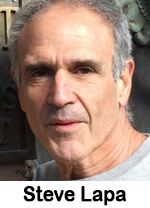 Let’s take a lesson from arguably the greatest college basketball coach of all time: John Wooden.
Let’s take a lesson from arguably the greatest college basketball coach of all time: John Wooden.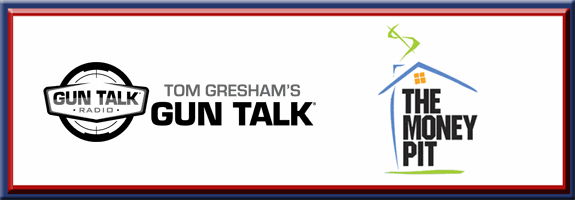


 Duran And The Morning Show,” with a live performance from local singer/songwriter sensation Jackie Romeo, currently a contestant on “The Voice.” BFoA says the mixers serve a dual purpose: to bring together up-and-coming broadcast professionals with their peers and executives; and to increase awareness of the BFoA’s charitable mission. BFoA president Tim McCarthy states, “Our first two Media Mixers were a huge success for young professionals who mingled with executives, and we’re looking forward to another great event. We have an obligation to show young people in radio and television that broadcasting offers successful and fulfilling career opportunities. We also need to help them understand what the Broadcasters Foundation does, why it’s important, and how they can help.” The two-hour event is free, but space is limited, and advance registration is required.
Duran And The Morning Show,” with a live performance from local singer/songwriter sensation Jackie Romeo, currently a contestant on “The Voice.” BFoA says the mixers serve a dual purpose: to bring together up-and-coming broadcast professionals with their peers and executives; and to increase awareness of the BFoA’s charitable mission. BFoA president Tim McCarthy states, “Our first two Media Mixers were a huge success for young professionals who mingled with executives, and we’re looking forward to another great event. We have an obligation to show young people in radio and television that broadcasting offers successful and fulfilling career opportunities. We also need to help them understand what the Broadcasters Foundation does, why it’s important, and how they can help.” The two-hour event is free, but space is limited, and advance registration is required.  This week, I started a five-night show on Audacy’s WPHT, Philadelphia. Thank you, market president David Yadgaroff. Because of my tenure in the industry, I received a flattering, humbling number of emails from colleagues in radio. THANK YOU. The support and encouragement are appreciated and certainly needed!
This week, I started a five-night show on Audacy’s WPHT, Philadelphia. Thank you, market president David Yadgaroff. Because of my tenure in the industry, I received a flattering, humbling number of emails from colleagues in radio. THANK YOU. The support and encouragement are appreciated and certainly needed!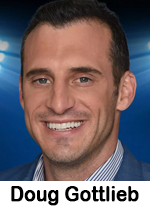 personality Doug Gottlieb is the new head coach of the school’s men’s basketball team. In what is a first, Gottlieb will continue to host his daily, two-hour radio show for FSR while undertaking his new role with UW-GB Phoenix. Gottlieb was a standout point guard at Oklahoma State from 1997 – 2000. He’s coached AAU teams and coached at the Maccabiah Games in Israel. During time in the media, he’s been a studio and in-game commentator for college hoops over the years while serving with ESPN, CBS Sports and Fox Sports.
personality Doug Gottlieb is the new head coach of the school’s men’s basketball team. In what is a first, Gottlieb will continue to host his daily, two-hour radio show for FSR while undertaking his new role with UW-GB Phoenix. Gottlieb was a standout point guard at Oklahoma State from 1997 – 2000. He’s coached AAU teams and coached at the Maccabiah Games in Israel. During time in the media, he’s been a studio and in-game commentator for college hoops over the years while serving with ESPN, CBS Sports and Fox Sports.  defaming two Georgia election workers, and they were accusing him of make new false accusations against them.
defaming two Georgia election workers, and they were accusing him of make new false accusations against them. 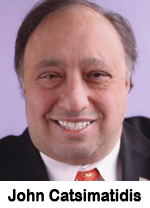 talking about the 2020 election for three years and was never made aware that election talk was off limits. In The New York Times story Giuliani states that WABC’s policies on this topic are “a clear violation of free speech” to which TALKERS founder Michael Harrison comments, “As a lawyer, former attorney
talking about the 2020 election for three years and was never made aware that election talk was off limits. In The New York Times story Giuliani states that WABC’s policies on this topic are “a clear violation of free speech” to which TALKERS founder Michael Harrison comments, “As a lawyer, former attorney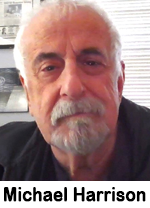 general and former mayor, Giuliani should know better than to muddy the waters about ‘free speech’ by citing it and distorting it for his own defense in this manner. The letter of the law regarding the First Amendment protects the rights and responsibilities of Catsimatidis as the licensee and platform owner in this situation. And as far as the spirit of the law as indicated by the general term ‘free speech’ is concerned, the understanding between these two men as to what Giuliani can discuss on WABC is completely subjective and ultimately based on what the licensee determines at any given moment to be in the best interest of the platform, its listeners and most importantly, the truth.”
general and former mayor, Giuliani should know better than to muddy the waters about ‘free speech’ by citing it and distorting it for his own defense in this manner. The letter of the law regarding the First Amendment protects the rights and responsibilities of Catsimatidis as the licensee and platform owner in this situation. And as far as the spirit of the law as indicated by the general term ‘free speech’ is concerned, the understanding between these two men as to what Giuliani can discuss on WABC is completely subjective and ultimately based on what the licensee determines at any given moment to be in the best interest of the platform, its listeners and most importantly, the truth.”  Does anyone care anymore?
Does anyone care anymore?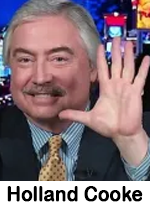 Actor Hugh Grant’s Tweet called it “The destruction of the human experience. Courtesy of Silicon Valley.” He was reacting to Apple’s
Actor Hugh Grant’s Tweet called it “The destruction of the human experience. Courtesy of Silicon Valley.” He was reacting to Apple’s 